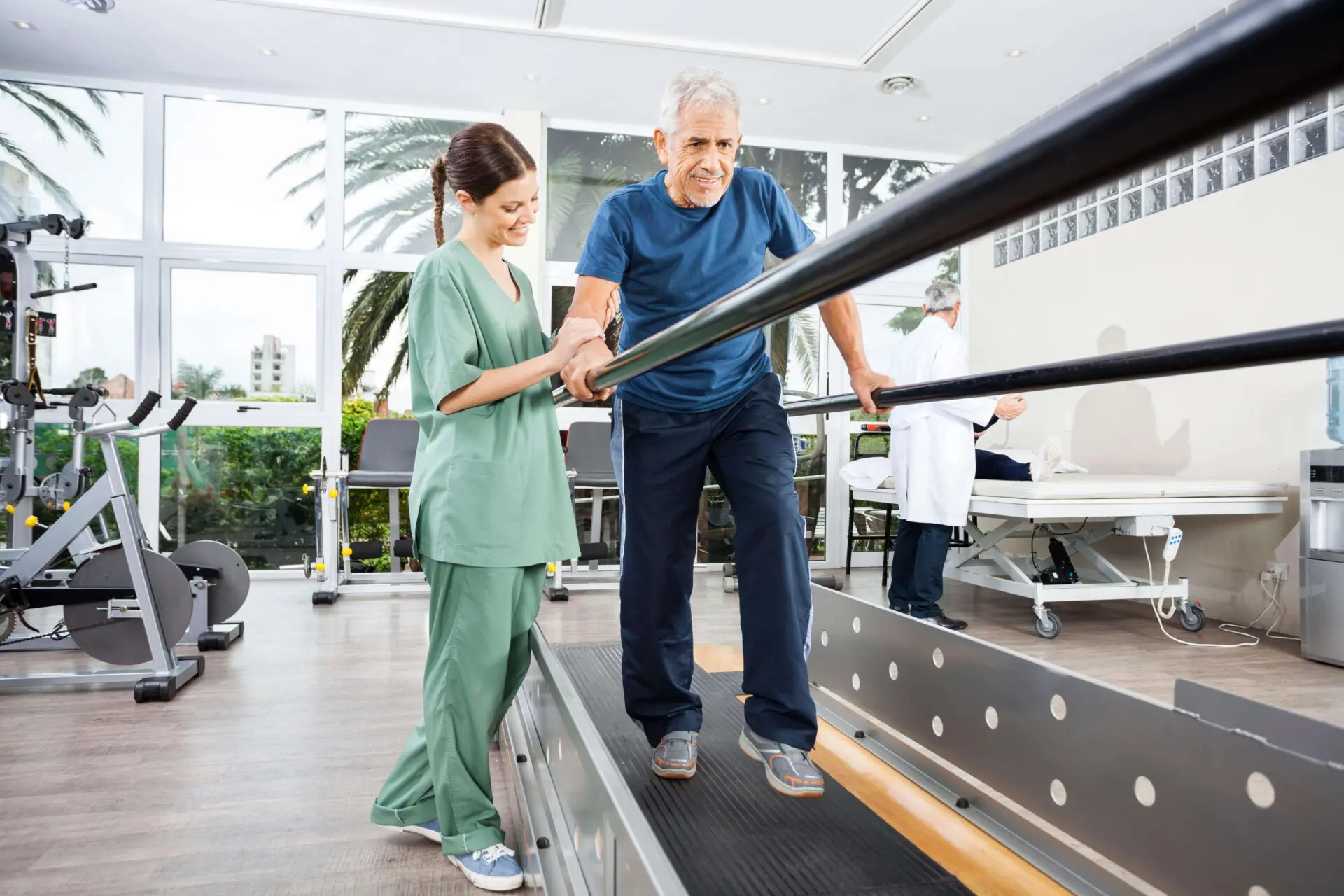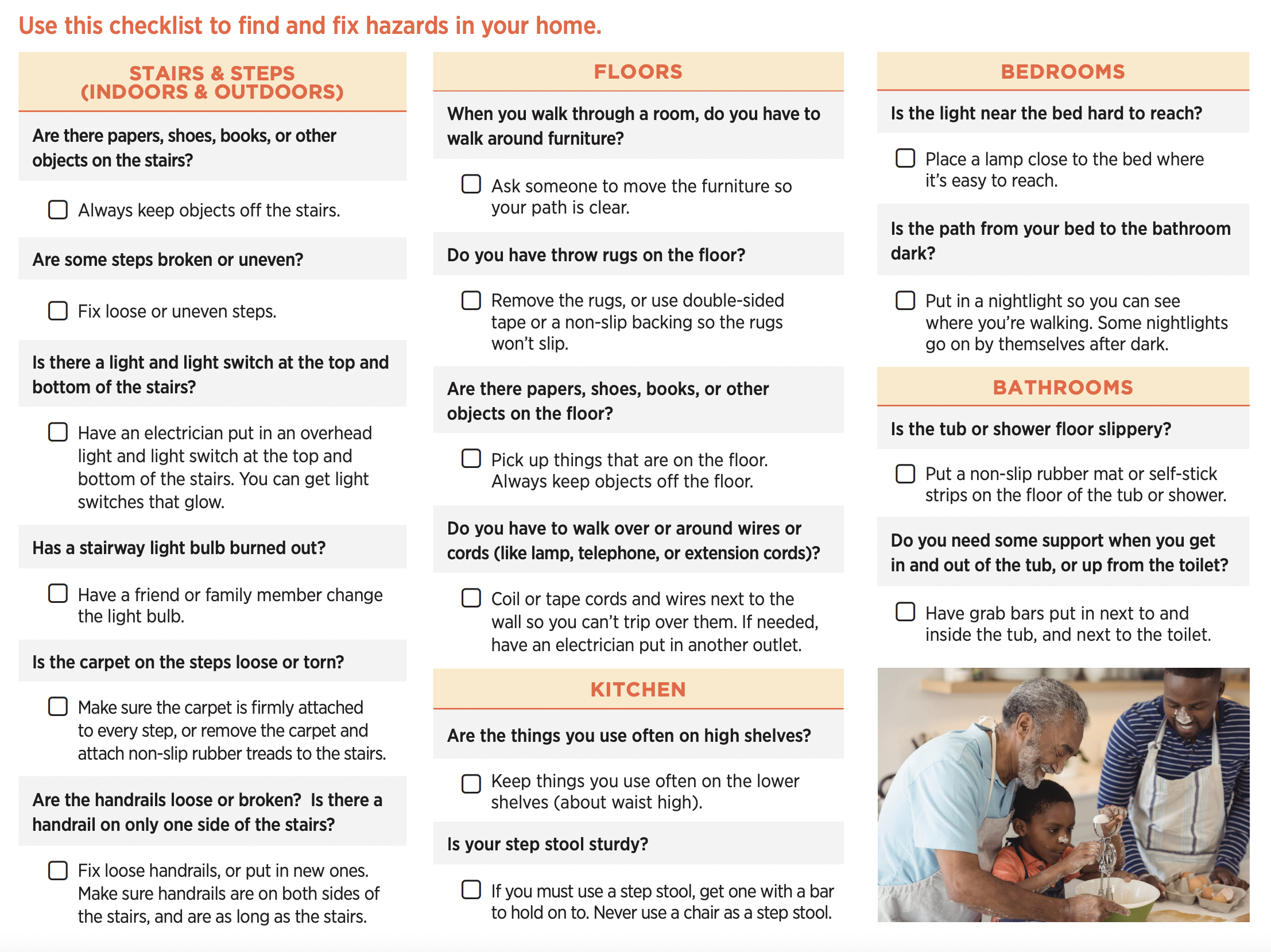Dementia Fall Risk Can Be Fun For Everyone
Dementia Fall Risk Can Be Fun For Everyone
Blog Article
The Best Strategy To Use For Dementia Fall Risk
Table of ContentsDementia Fall Risk Can Be Fun For AnyoneAn Unbiased View of Dementia Fall RiskAll About Dementia Fall RiskDementia Fall Risk - An Overview
A loss threat evaluation checks to see how most likely it is that you will fall. The evaluation normally consists of: This includes a series of questions about your general health and wellness and if you've had previous falls or problems with balance, standing, and/or strolling.Interventions are recommendations that might decrease your risk of falling. STEADI consists of 3 steps: you for your risk of dropping for your risk aspects that can be boosted to attempt to prevent drops (for example, equilibrium issues, damaged vision) to lower your threat of dropping by using efficient methods (for instance, providing education and resources), you may be asked several concerns including: Have you fallen in the past year? Are you fretted about dropping?
You'll rest down again. Your supplier will certainly check the length of time it takes you to do this. If it takes you 12 seconds or more, it may mean you are at higher risk for an autumn. This test checks strength and balance. You'll sit in a chair with your arms crossed over your breast.
The placements will obtain tougher as you go. Stand with your feet side-by-side. Relocate one foot halfway forward, so the instep is touching the big toe of your various other foot. Relocate one foot completely in front of the other, so the toes are touching the heel of your other foot.
Rumored Buzz on Dementia Fall Risk
Most falls take place as an outcome of numerous contributing aspects; therefore, taking care of the danger of dropping begins with determining the aspects that add to drop risk - Dementia Fall Risk. A few of the most pertinent risk variables include: History of prior fallsChronic clinical conditionsAcute illnessImpaired gait and balance, reduced extremity weaknessCognitive impairmentChanges in visionCertain risky medicines and polypharmacyEnvironmental variables can additionally raise the threat for falls, including: Inadequate lightingUneven or harmed flooringWet or slippery floorsMissing or damaged hand rails and order barsDamaged or incorrectly fitted equipment, such as beds, wheelchairs, or walkersImproper use assistive devicesInadequate supervision of individuals staying in the NF, consisting of those that exhibit aggressive behaviorsA successful fall risk monitoring program calls for a detailed scientific evaluation, with input from all participants of the interdisciplinary group

The treatment strategy must likewise include interventions that are system-based, such as those that promote a safe setting (ideal lights, hand rails, get hold of bars, and so on). The efficiency of the interventions ought to be examined regularly, and the care strategy changed as essential to show adjustments in the fall risk analysis. Implementing an autumn danger administration system using evidence-based best technique can minimize the frequency of drops in the NF, while limiting the potential for fall-related injuries.
4 Simple Techniques For Dementia Fall Risk
The AGS/BGS guideline advises screening all grownups matured 65 years and older for loss danger every year. This screening is composed of asking patients whether they have dropped 2 or even more times in the past year or sought clinical focus for an autumn, or, if they have actually not fallen, whether they feel unstable when walking.
People that have fallen as soon as without injury ought to have their equilibrium and gait assessed; those with stride or balance irregularities should get added evaluation. A background of 1 fall without injury and without gait or equilibrium troubles does not warrant additional analysis past continued annual autumn threat screening. Dementia Fall Risk. An autumn danger analysis is required as part of the Welcome to Medicare assessment

The Ultimate Guide To Dementia Fall Risk
Documenting a falls background is one of the high quality indicators for loss avoidance and administration. Psychoactive drugs in specific are independent predictors of drops.
Postural hypotension can commonly be eased by decreasing the dosage of blood pressurelowering drugs and/or stopping drugs that have orthostatic hypotension as a negative effects. Use above-the-knee assistance hose pipe and copulating the head of the bed boosted may additionally minimize postural decreases in high blood pressure. The preferred aspects of a fall-focused try these out checkup are received Box 1.

A TUG time greater than or equivalent to 12 secs suggests high autumn danger. The 30-Second Chair Stand examination assesses lower extremity toughness and balance. Being incapable to stand up from a chair of knee height without utilizing one's arms suggests raised fall danger. The 4-Stage Equilibrium examination analyzes fixed balance by having the client stand in 4 settings, each gradually extra challenging.
Report this page